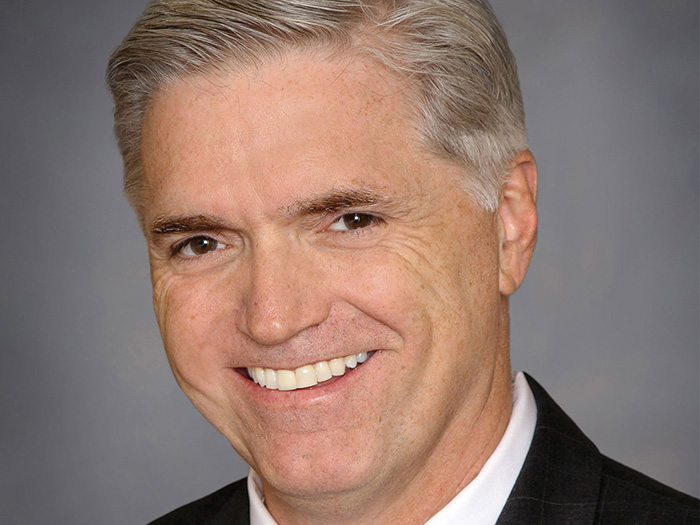Employers Face Challenges Meeting Gen Z Benefit Needs: The Hartford

With Gen Z poised to overtake baby boomers in the full-time workforce by the end of 2024, employers face unique challenges in addressing the diverse needs and expectations of a multigenerational employee base, and meeting the needs of Gen Z, according to The Hartford’s fifth annual Future of Benefits Study.
“The expectations and needs of Gen Z workers across many facets of the workplace are notably different from other generations. As the number of next-generation employees surpasses baby boomers in the workplace, understanding these differences and taking a multigenerational approach to workplace benefits is crucial to shaping the future of work,” Jonathan Bennett, head of Group Benefits at The Hartford, said of the survey’s findings.
The Hartford surveyed HR professionals who manage employee benefits at 502 employers and 1,246 U.S. workers who are actively employed for the 2024 report.
Wellbeing, Productivity and Benefits Gaps
Despite decreased burnout levels, 60% of U.S. workers still experience some burnout, which is down from 68% a year ago. The survey found that 40% of workers feel pressure to be available outside normal working hours, up from 34% in 2023.
Gen Z workers (32%) are more likely to always or often experience burnout compared to other generations, the survey found. And 51% of Gen Z workers feel pressure to be available after hours, compared with 45% of millennials, 39% of Gen X and 27% of baby boomers.
Some workers, especially Gen Z, feel their productivity is negatively impacted by financial, physical, and mental health. Overall, 31% of workers say financial health always or almost always negatively impacts productivity, while 26% and 24% report the same for mental and physical health, respectively.
Interestingly, employers tend to prioritize mental and physical health above financial health, despite workers indicating that financial health has the biggest impact on productivity, The Hartford found. Some 41% of employers ranked mental or physical health as their top priority, and only 18% ranked financial health as a top goal. This disconnect highlights a gap between the importance of individual benefit needs and how well employer benefits address those needs, especially for financial security, the survey noted.
Job satisfaction levels in 2024 decreased slightly from 2022, but 43% of U.S. workers are extremely or very satisfied in their jobs, while 40% are extremely or very happy at work, consistent with how they felt in previous years, the survey found.
Benefits Satisfaction
Over the past five years, U.S. workers have consistently said they value the benefits their employers offer them, The Hartford reported. Eight out of 10 workers say they value the insurance benefits their employer offers, and 75% said the benefits offered meet their needs.
However, 38% of workers admit they don’t fully understand or utilize the voluntary or supplemental workplace benefits available and what they cover, while 57% do not typically upgrade or buy additional benefits offered.
Roughly three-quarters of workers, 74%, said they want to learn about their benefits year-round, not just during open enrollment, the survey noted.
Mental Health in the Workplace
Mental health challenges continue to impact workers, with younger generations feeling the strain most acutely. Some 29% of employees report feeling depressed or anxious at least a few times per week, a notable increase from 20% in March 2020. This trend is even more pronounced among Generation Z, with 45% experiencing frequent depression or anxiety compared to just 15% of baby boomers, the survey found.
Stigma remains a significant barrier to seeking mental health support, with 39% of workers saying it prevents them from getting help for mental health issues. Again, this is felt most strongly by Gen Z, with 52% citing stigma as an obstacle, per the survey.
There is a clear disconnect between employer and employee perceptions of mental health support in the workplace, according to The Hartford. A full 86% of employers believe their company fosters an open and inclusive environment that encourages dialogue about mental health, but only 52% of workers share this view.
Many employers recognize the need for expanded mental health resources, with 70% expressing a desire to add more support. However, budgetary constraints pose a challenge, leaving companies struggling to meet the growing demand for these critical services, the report noted.
As mental health continues to impact workers across generations, particularly Gen Z, it is crucial for employers to find ways to break down stigma, encourage open communication, and invest in the resources needed to support employee well-being, The Hartford emphasized.
Evolution of Paid Leave
Paid family and medical leave benefits are sought by all generations in the workplace to help employees of all ages take care of themselves or their loved ones. According to the U.S. Bureau of Labor Statistics, 27% of private industry workers have access to paid leave, more than double from 12% in 2014.
Many employers report adding different types of paid leave benefits to support their employees, and access continues to expand as additional states implement new leave laws or voluntary programs. Employers have added or expanded leave benefits in 2024 beyond state or federal requirements, including medical leave (46%), sick time (46%), and paid time off (PTO)/vacation time (39%).
Despite the expansion of leave benefits, many U.S. workers, especially Gen Z, express concerns about taking a leave of absence from work. While many U.S. workers believe their company provides flexibility and support to care for themselves and their family, one-third believe there is a negative perception associated with taking leave and/or are fearful of workplace repercussions related to taking leave, the survey found. The fear of workplace repercussions for taking leave has increased to 34% in 2024 from 29% in 2023. Among Gen Z workers, that figure rises to 49%.
To view the full 2024 report, visit The Hartford website. &










